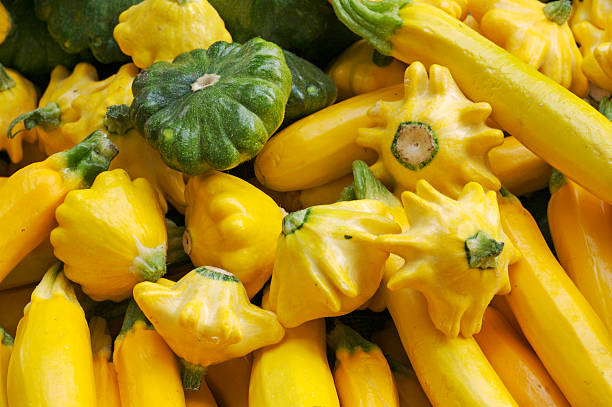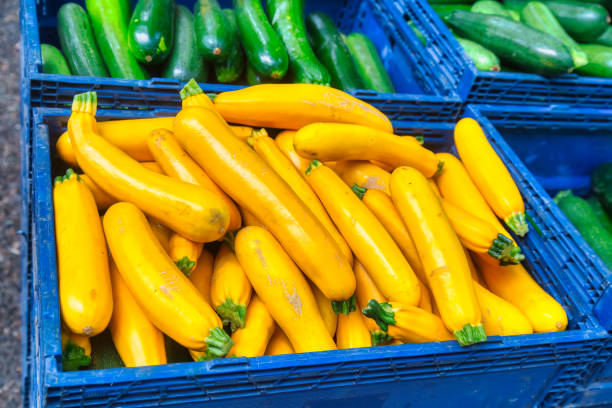Yellow squash, also known as summer squash, is a popular vegetable that is low in calories and high in nutritional value. One cup of sliced yellow squash contains only 19 calories, making it an excellent choice for those looking to lose weight or maintain a healthy diet.
Yellow squash is a member of the cucurbitaceae family, which also includes other popular vegetables such as cucumbers and zucchini. The vegetable is typically picked when it is still immature, which is why it has a delicate texture and a sweet, mild flavor. Yellow squash is typically eaten cooked, but it can also be eaten raw.
Yellow squash is a good source of vitamin C, which is important for maintaining a healthy immune system and promoting collagen production in the skin. It also contains vitamin A, which is essential for maintaining healthy eyesight and skin, as well as potassium, which helps to regulate blood pressure and support healthy muscle and nerve function.
In addition to its low calorie content, yellow squash is also a good source of dietary fiber. Fiber helps to promote satiety and can aid in weight loss by keeping you feeling full for longer periods of time. It also helps to regulate digestion and can reduce the risk of constipation.
In addition to being low in calories, yellow squash is also a good source of dietary fiber. One cup of diced yellow squash contains 2 grams of dietary fiber, which is 8% of the daily recommended intake for adults. Dietary fiber is important for maintaining a healthy digestive system and can also help with weight loss by keeping you feeling full longer.
Yellow squash is also a good source of antioxidants, which help to protect the body against harmful free radicals that can cause damage to cells and lead to the development of chronic diseases such as cancer and heart disease. One of the most powerful antioxidants found in yellow squash is carotenoids. Carotenoids have been shown to have anti-inflammatory properties and may also help to reduce the risk of heart disease.
Another benefit of yellow squash is its low glycemic index, which means that it can help to regulate blood sugar levels and reduce the risk of type 2 diabetes. This is because it is slowly digested and absorbed by the body, which helps to prevent sharp spikes in blood sugar levels.
Yellow squash is also a good source of antioxidants, specifically carotenoids. Carotenoids are plant pigments that have been shown to have anti-inflammatory and anti-cancer properties. One cup of diced yellow squash contains 2,809 mcg of beta-carotene, which is 46% of the daily recommended intake for adults. Beta-carotene is converted to vitamin A in the body, which is important for maintaining healthy skin, eyes, and immune system.
There are many different ways to prepare yellow squash, including steaming, sautéing, grilling, and baking. It can also be eaten raw, in salads or as a snack. Due to it’s delicate flavor, it pairs well with many different herbs and spices, such as basil, oregano, and thyme.
In addition to its nutritional value, yellow squash is also versatile and easy to incorporate into many different dishes. It can be sautéed, grilled, roasted, or added to soups, stews, and casseroles. It can also be used as a substitute for pasta in dishes like spaghetti or lasagna, providing a lower calorie option.
In conclusion, yellow squash is a low-calorie, nutrient-dense vegetable that is packed with vitamins, minerals, and antioxidants. It is a great choice for those looking to lose weight, maintain a healthy diet, or reduce their risk of chronic diseases. With so many delicious and easy ways to prepare it, adding yellow squash to your diet is a great way to boost your health and well-being.

 Home
Home Health
Health Diet & Nutrition
Diet & Nutrition Living Well
Living Well More
More












